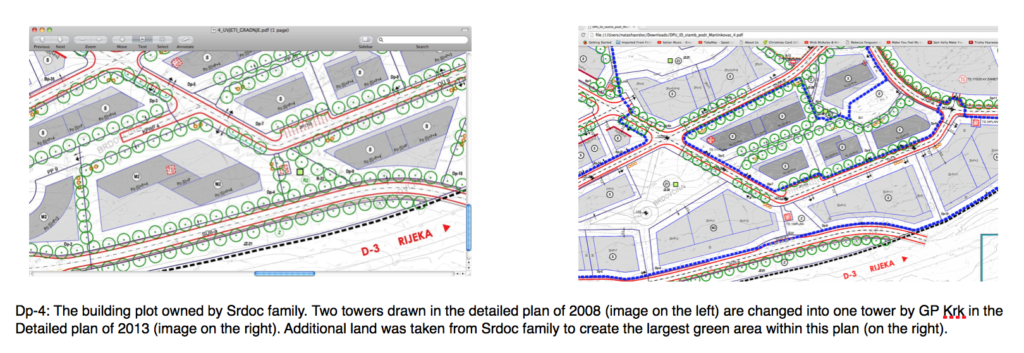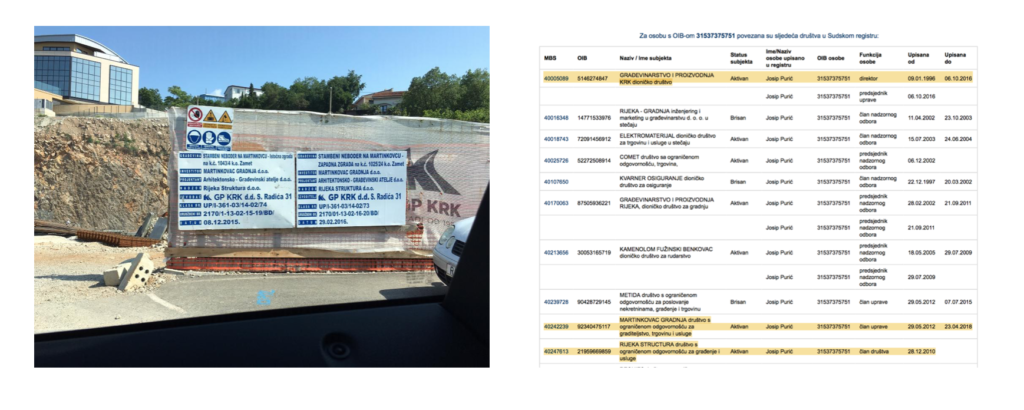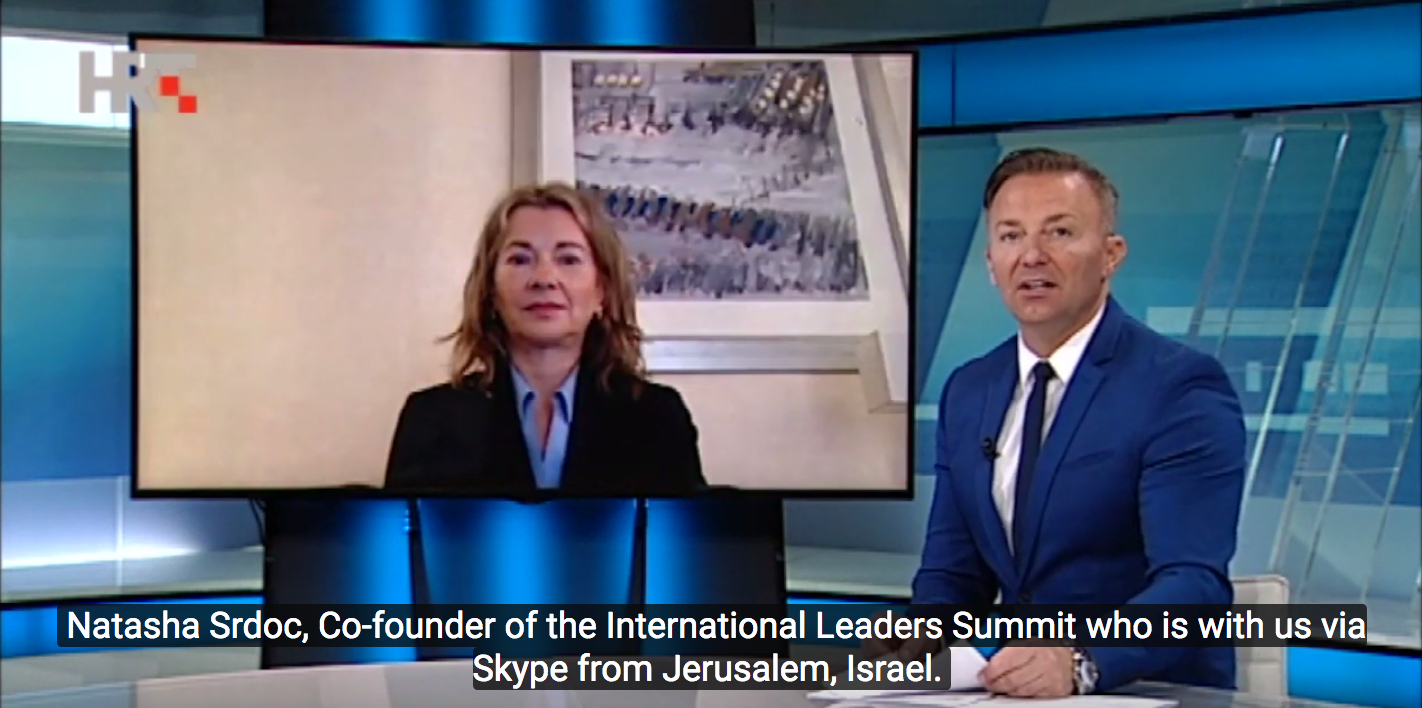Vojko Obersnel, Mayor of Rijeka, Croatia and Srdjan Skunca, Head of the City’s Department for Urban Planning Must Resign
Why is Vojko Obersnel mayor of Rijeka, favoring the company GP Krk d.d., while harming private owners and taxpayers?
In order to answer these questions, it is vital to review the ownership structure of GP Krk (Construction and Production Krk d.d.) and its affiliated companies which receive taxpayer funds from American and European taxpayers through World Bank, European Union and other Western taxpayer funded multilateral entities.
Secondly, a full audit of the consolidated financial statements and entire operations of GP Krk and its affiliated companies – should be undertaken by an independent and internationally recognized auditing company. It is also necessary to investigate, any kickbacks, and examine the relationships of all the individuals within the City of Rijeka who work for the benefit of GP Krk company. Particular attention should be given to the heads of the City Department of Development, Urbanism, Ecology and Land Management.
In the rule of law countries, an independent judiciary protects private property rights. This is not the case in Croatia. In the 2018 World Economic Forum’s report, Croatia’s parlous judicial system was ranked 120th out of 140 countries, with Venezuela and Bolivia on the bottom placed at 139th and 140th, respectively. Croatia is proud of its EU and NATO club status, however, a close review reveals that the Balkan nation does not even meet the criteria of the above mentioned Euro-Atlantic institutions.
The author’s personal experiences, including the extended family, reveals evidences regarding the unscrupulous actions of the City of Rijeka’s authorities. The significant financial harm inflicted by the City of Rijeka on the Srdoc families over the past thirty years include the following:
a) Direct seizure of privately owned land
b) Reducing the benefits of private property rights to individual land owners through deceitful practices carried out by the City’s urban planning committee.
c) Court decisions that come largely in their favor due to a politically influenced judiciary.
Vojko Obersnel and his cadre are accustomed to the following two categories of foreign investments:
1) Funding by EU and US taxpayers, which does not require his accountability
2) Money of suspicious origin, which does not seek profitability nor accountability in Croatia.
Obersnel’s statements implying that a private investor should visit him first, provide a Letter of Intent, an MOU, “which is a common practice in this type of investment,” according to Obersnel, defies the common sense of a private investor investing in his/her own property (land) using the same criteria applied to other investors.
The city of Rijeka, and the entire Croatia, will not attract honest investors from rule of law countries as long as the individuals in government structures perpetuate lawlessness, participate in money laundering, and encourage corruption and bribery. An authority that is prone to corruption makes itself an indispensable link for every investment, thus opening an opportunity to seek bribes, and forcing partnerships with favored architect, contractor-construction company, and other construction participants, among others.
Illegal subsidies, trading in influence and collusion to commit a crime – are criminal offenses against official duty.
It is important to understand the systematic violation of private property rights and corruption in urban planning in order to avoid such situations in the City of Rijeka and Croatia in the future.
The City of Rijeka and GP Krk embarked on drafting a “detailed plan” which was against the rules/regulations, since the conditions for creating the detailed plan were not fulfilled:
I) Investors for the land under the plan were not known in advance.
II) Funds for the communal and other infrastructure were not and still are not secured.
III) The owners have still not been compensated for the land, and the ownership is not delineated to allow the completion of the plan.
Against the regulations, and without a tender, G.P. Krk initiated the project documentation (2013), which was eventually paid by taxpayers in 2017 and the Srdoč family.
The Srdoč family which owned the largest single building plot, 9,000 m2 (0.9 hectares) of land, representing 16% of total land in the area of the detailed plan was not informed nor invited to participate in the drafting of the plan.

Instead of the previous two towers, GP Krk and the City of Rijeka, have drawn one tower structure on the Srdoc’s property. The largest green area of this plan – JZ-30 is mostly owned by the Srdoč family, thus making the Srdoč family the largest single contributor to the green area of the entire planned area, causing the largest reduction of the property value to a single owner of this plan.

G.P. Krk, and the City of Rijeka, imposed a repulsive object of reduced functionality on the land plot owned by the Srdoč family, refusing to provide the same conditions as they provided to the land owned by GP Krk on the neighboring land of the same size, deteriorating property’s commercial viability and bringing significant financial harm to the Srdoc family.
Brief Chronology
1. Without a tender, the connected companies G.P. Krk, Metida, Martinkovac Gradnja, as investors-insurers of funds, got approval from Vojko Obersnel, mayor of Rijeka for signing of the “Contract to finance the Development of the Amended Detailed Plan for the Residential Area of Martinkovac by the companies GP KRK d.d., Martinkovac Gradnja, and Metida" in 2013.
The connected companies were under the same directorship and ownership, led by G.P. Krk (a local construction company involved in frequent dominant position abuse), have undertaken the “financing” of the project documentation, land surveys, and parcelization of attractive land overlooking the sea spanning over 5.45 ha (54,500 m2 / 13.5 acres).
2. The Srdoč family, which owned the 0.9 ha (2.2 acres), representing 16% of the total land under the plan, was not informed nor invited to participate in creating the plan.
3. These companies provided the privileged position and significant economic benefit to themselves, at the expense of individual private owners. With the detailed plan, GP Krk secured maximum buildable area for itself (around 90% – proportion of the construction site vs. the common areas and roads), and arbitrarily imposed two large green areas: a) on the privately owned land by Srdoč family, b) on the land owned by the City of Rijeka.
4) In the process, construction/ buildable area of Srdoč family was reduced to 65%.
5) Illegal subsidies – The City of Rijeka compensated to G.P. Krk a minimum of 88% of the project documentation cost, with the permit fee in 2017, with an option to cover the entire cost.
Instead of charging the permit fees to GP Krk, which funds are designated to be used in order to resolve property and legal relations with other owners, the City of Rijeka misappropriated the funds by granting unlawful subsidies to GP Krk.
Paradoxically, given that the City of Rijeka has still not paid for the green area belonging to Srdoč family, it turns out that the City of Rijeka used the family Srdoč’s funds (whom it did not pay) to finance the project documentation (paid to GP Krk), that brought financial harm to the Srdoč family.
G. P. Krk continues to operate outside of the realm of the law, raising concerns of the adequacy of supervision and safety of living in its buildings.
Article 31 of Croatia’s Law on Works and Activities of Physical Planning and Construction states:
“A Contractor shall not be involved in conducting expert supervision of the construction of the same building.“
Article 50 of the Construction Law states:
“An investor who is also a contractor must have professional supervision of construction entrusted to another person who qualifies for professional supervision of construction under a special law.“
Against the Laws, G.P. Krk is supervising its own construction:

The photograph on the left was taken on the construction site on May 25, 2018 in Rijeka (within the area covered by the Detailed Plan). The company registry, on the right, shows that the investor, contractor and supervisor are connected companies owned by the same persons.
The lawlessness in the City of Rijeka must come to an end. It is time for Mayor Obersnel to leave the governance of the City to honest and competent people, who will open the City to investors from rule of law countries, and stop money laundering and further violations of private property rights and the rule of law in Rijeka, Croatia.


